Investigating free software for children with Down syndrome
The use of ICT as an aid to learning has been an integral part of special education for over 20 years in the UK. During this time software resources have developed that are particularly relevant to the learning profile of this group of learners. As access to computers and the Internet becomes cheaper and more available, the 'Digital Divide' gets smaller as more homes have access to resources that enhance the lives and learning of traditionally more isolated groups. While more able users have access to a whole host of free to use activities both on the computer and increasingly 'On Line', young people with cognitive and motor difficulties can struggle to find 'user friendly' resources that meet their needs. This simple investigation brings together information on free resources that tackle this problem and make available a range of educational and leisure opportunities that are more likely meet the individual needs of a range of young people with Down syndrome.
Black, B. (2010) Investigating free software for children with Down syndrome. Down Syndrome Research and Practice, 12(2), 98-102. doi:10.3104/practice.2116
Good software for special educational needs has long been available and many titles are specifically geared towards the specific learning profile of children with Down syndrome. Schools will almost all have access to some titles such as Clicker 5 or other more specific curriculum software such as the Oxford Reading Tree or Numbershark and Wordshark and as long as teachers and teaching assistants have the training to use these effectively they have proven to be essential tools in meeting the needs of a wide range of children the school environment.
A sustained campaign by parent groups and home users has led to the cost of using these educational software programs being considerably reduced for those working with an individual child at home to reinforce learning and adapt tasks. The majority of good education suppliers will have a separate and less economically daunting 'Home User' version of the main education titles. Speaking for Myself Plus currently costs over £50 - 250 for a license in school but only £20 for a home user. Using good quality software at home is becoming cheaper in the UK, which is good news for individuals.
A couple of years ago there was a sea change in the way that schools started to access software for use in schools. The availability of fast internet connection meant that they could access software over the web and run it in a web browser without purchasing anything else. The BBC pioneered a huge range of software from the BBC online website and CBeebies websites, much of which was thoughtfully geared to children with additional needs. Schools started to use these 'free' resources whenever possible and the educational software industry was shocked and frightened by the sudden availability of free resources to schools which would threaten their ability to invest in developing new software and, in many cases, even stay in business. There followed a tranche of initiatives to try and help; access to 'e-learning credits' basically meant that schools had access to funds through government funding to pay for software and continue to support the marketplace in producing quality SEN software resources. The debacle of course goes on and I am not privy to all the machinations of the software industry and government initiatives through its agencies, such as 'British Educational Communications and Technology Agency' now known simply as ' Becta ' but with a deepening recession and a slow down in sales to schools of commercially produced software it is probably inevitable that more resources will need to become free to the end user, especially if children with SEN are not to be disadvantaged by a failure to invest in specialist resources in times of reduced budgets.
Increasingly now when I give talks and demonstrations on SEN software I can show how to use and where to find free resources and have collected many useful programs that I can give to people who are interested in using them either in schools or at home with their children, as many are well designed, fun to use and extremely motivating, the plus being that if some turn out to be not suitable for an individual child or have only a limited 'Lifetime' of relevance to an child it has not been an expensive mistake and alternatives can be tried and investigated.
I would still recommend the commercial titles listed at the end of this article as pretty much essential resources, but am happy to suggest a range of 'freebies' that would enhance and add to that list, offering variety and a raft of possibilities to increase a child's opportunities to use computers as an aid to learning.
Many very simple cause and effect programs are available which simply allow error free interaction with the computer:
- Chimes simply associates sounds with sections of the picture and plays them as the mouse goes over each section (Figure 1).

Figure 1 | Chimes
- Mini Facemaker lets children choose a face and add different mouths, noses, hair, beards, hats etc. to create printable pictures (Figure 2).

Figure 2 | Mini Facemaker
- The Helpkidzlearn section of the https://www.inclusive.co.uk/index.shtml website offers a huge range of these free resources (Figure 3).
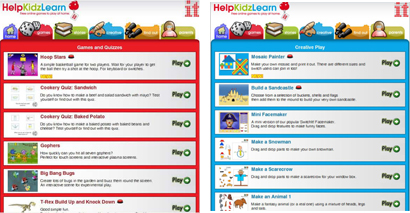
Figure 3 | Helpkidzlearn resources
The resources pages of Priory Woods school also has a wealth of free software to explore (Figure 4):
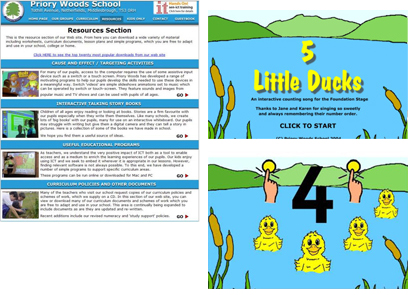
Figure 4 | Priory Woods School resources
- Simple early years games software using song and rhyme is very popular with children with Down syndrome and plenty of opportunities for these types of activity are available in Flash* and other formats that can be played over the internet or installed on your computer.
- The website https://www.senteacher.org/ also offers a host of practical resources for supporting children in school including many free to use software activities, puzzles and games (Figure 5).
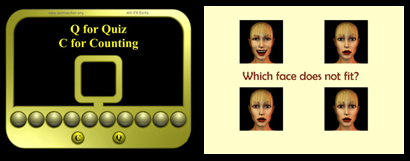
Figure 5 | Free software from senteacher.org
I have been able to design a few pieces of software specifically to meet the needs of children with Down syndrome as part of my role within the Down Syndrome Association, and these can be downloaded and used free of charge from https://www.supportdisc.co.uk/ including the hugely popular Interactive Visual Timetable software and Talking and Listening which begins to explore the use of the recorded voice to aid with productive language skills and enunciation.
- Interactive Visual Timetable allows you to sequence and present events from simple 3 and 4 events series, to weekly school timetables using the pictures included or adding your own from your computer or digital camera (Figure 6).
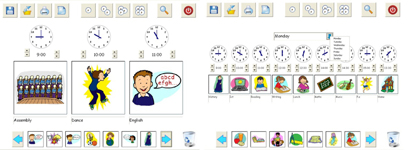
Figure 6 | Interactive Visual Timetable
- Talking and Listening allows the user to work with a microphone attached to the computer to start at a simple level of making a picture bigger depending on how loud you talk or make a noise, record and play back your own voice and manipulate it and create spoken sentences from editable wordbanks using the installed voices or recording your own (Figure 7).
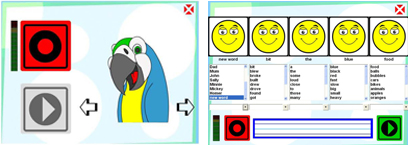
Figure 7 | Talking and Listening
Using sound and video is increasingly popular with older learners and young adults to enable them to access the mainstream revolution in social networking using sites such as Utube and Facebook. Windows computers offer free programs such as Sound Recorder and Windows Movie Maker to allow more complex editing (Figure 8). Advanced sound editing can be achieved with Audacity which is a free 'open source' editing program commonly used in mainstream software production.

Figure 8 | Sound Recorder and Windows Movie Maker
I am increasingly hearing from parents whose young adults are getting to grips with social networking on the web and, while this presents all the same challenges for vulnerable young people as it does for the rest of the population of teenagers, the potential for increased social networking and developing social skills from the comfort of your own home does seem particularly attractive for people who may have limited opportunities to travel independently and access more traditional social opportunities. These opportunities I suggest make the development of ICT skills and the increased use of ICT to enhance creativity, even more important than we had previously thought and the availability of free and easy to share software brings increased opportunities within the reach of the majority of young people with Down syndrome.
Of course the chance to simply play games as a leisure opportunity is one that young people of all abilities enjoy, and accessing games that have the simplicity to operate while maintaining a level of adult interest can be hard to find (see Figure 9); again the freeware opportunity to try out and explore without any major financial outlay is very attractive and the range of simple activities is growing.
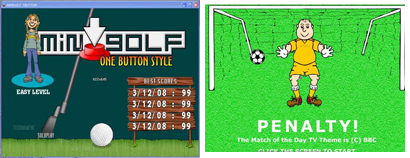
Figure 9 | Examples of freeware that is age-appropriate but simple to operate
Sources of free software and teaching resources
- Interactive Visual Timetable and Talking and Listening software: https://www.supportdisc.co.uk
- Mini Facemaker/Chimes/Ducks and many more: Helpkidzlearn https://www.helpkidzlearn.com/index.html
- Cause and effect/story books and lots more: Priory Woods school https://www.priorywoods.middlesbrough.sch.uk/resources/restop.htm
- Abilitynet factsheets and skillsheets: https://www.abilitynet.org.uk/athome_resources
- Curriculum activities puzzles and games for SEN: https://senteacher.com/
- Audacity: open source free audio recording and editing https://audacity.sourceforge.net/
- Talking Faces/Music games. Free resources at: https://www.inclusive.co.uk/downloads/downloads.shtml#talkingfaces
Not free but highly recommended commercial products
Recommended starter software for under 7s with Down syndrome:
- Switch It Originals set 1 and 2 https://www.inclusive.co.uk/index.shtml
- My B oard https://www.inclusive.co.uk/index.shtml
- Speaking for Myself Plus https://www.topologika.com/
- Clicker 5 https://www.cricksoft.com/
- A Busy Day https://www.semerc.com/
- Dazzle https://www.semerc.com/
- Musical Leaps and Bounds https://www.semerc.com/
Recommended software for pre-school / early years:
Cognitive software using 'space bar' and 'return' keys:
- Switch It Originals https://www.inclusive.co.uk/index.shtml
- Blob https://www.widget.com
- Speaking for Myself Plus https://www.topologika.com/
Mouse use / training:
- IT Mouse Skills https://www.inclusive.co.uk/index.shtml
- Foundation Mouse Skills https://www.inclusive.co.uk/index.shtml
- Living Books https://www.broderbund.com
Recommended software for primary / secondary schools
Talking word processor:
- My First Words https://www.rm.com
- Clicker 5 https://www.cricksoft.com/
- Talk Write https://www.resourcekt.co.uk/
- Textease https://www.softease.com/
- Inclusive Writer https://www.inclusive.co.uk/index.shtml
On Screen worksheets:
- Inclusive Writer https://www.inclusive.co.uk/index.shtml
- Clicker 5 https://www.cricksoft.com/
Reading support:
- Living Books https://www.broderbund.com/
- Talking Books https://www.sherston.com/
- Speaking for Myself Plus https://www.topologika.com/
- A Busy Day https://www.semerc.com/
- Planet Wobble https://www.cricksoft.com/
- Wellington Square www.semerc.com
- Scally's World https://www.topologika.com/
Spelling:
- Starspell 2000 https://www.fishermarriott.com/
- Wordshark https://www.wordshark.co.uk/
- Smart Phonics 1 https://www.inclusive.co.uk/index.shtml
Memory training:
- Mastering Memory www.calsc.co.uk
Numeracy:
- Numbershark https://www.wordshark.co.uk/numbershark.html
Keyboard training:
- 2Type https://www.2simple.com/2type/
- First Keys https://www.widget.com
- Easi Keysi https://www.inclusive.co.uk/index.shtml
Bob Black is the education officer for the Down's Syndrome Association in the UK and has taken a special interest in software for children with Down syndrome and SEN since the introduction of computers to schools in the 1980s when he worked closely with the late Lesley Duffen on making computers and software accessible for this group of learners. Bob can be contacted by email educate@downs-syndrome.org.uk

